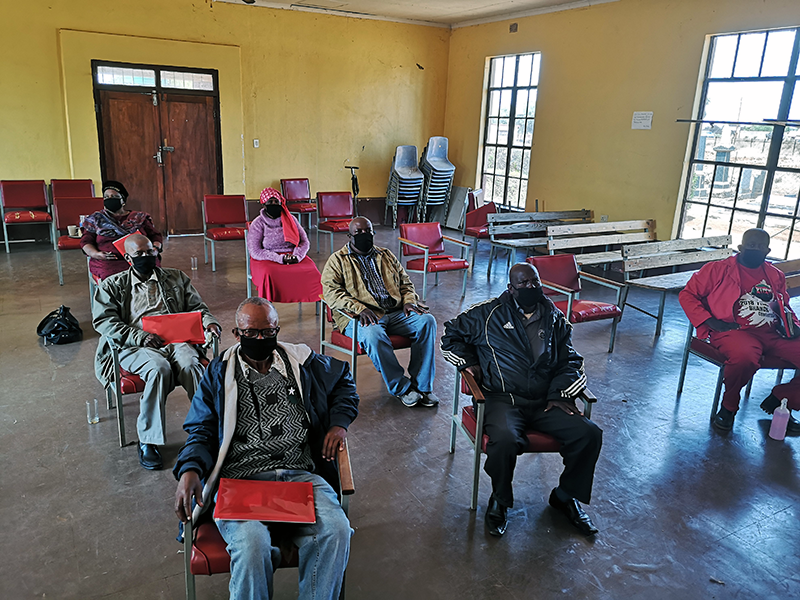College of Human Sciences
Unisa empowers SAPS through a Pastoral Care and Counselling Workshop
On 13 February 2025, the Department of Philosophy, Practical and Systematic Theology in the College of Human Sciences at the University of South Africa hosted a pastoral care and counselling workshop for the South African Police Service (SAPS). The event took place at the Muckleneuk Campus. This initiative aimed to equip SAPS members with emotional, spiritual and personal support skills, enhancing their capacity to minister effectively in crisis situations.

Prof Gift Baloyi from the Department of Philosophy Practical and Systematic Theology
The keynote presentation was delivered by Prof Gift Baloyi, who offered profound insights into the essence of care, explaining that care involves providing compassionate support to individuals in need. He emphasised that care transcends religious, cultural or disciplinary boundaries, while context defines the methods employed. He highlighted the significance of pastoral care in offering emotional, spiritual and personal support, particularly within a Christian context, and offered the important point of clarification that the term "pastoral" does not relate exclusively to the duties of a pastor, but instead encompasses a broader shepherding function focused on holistic care.
The workshop also focused on developing participants' understanding of ministry in crisis situations, emphasising empathy, active listening and a non-judgemental approach. Prof Baloyi encouraged participants to adopt spiritual discernment by applying wisdom and scriptural insights for guidance. He also explored various contexts for providing holistic care, equipping SAPS members with practical skills to support souls in crisis situations effectively.

Participants of the South African Police Services Workshop on Pastoral Care and Counselling
This initiative reflects Unisa’s commitment to community engagement and capacity building, particularly within public service sectors such as SAPS, where emotional resilience and spiritual well-being are crucial. By hosting such workshops, Unisa not only imparts academic knowledge but also contributes to societal well-being, fostering a compassionate and supportive community.
* By IHlubi Veli Mabona, Marketing Assistant, College of Human Sciences
Publish date: 2025/02/20

 Unisa co-hosts G20 community outreach in the Eastern Cape
Unisa co-hosts G20 community outreach in the Eastern Cape
 Unisans gain membership of prestigious science academies
Unisans gain membership of prestigious science academies
 Advocating for disability transformation through servant leadership
Advocating for disability transformation through servant leadership
 Unisa Press continues to illuminate the publishing space
Unisa Press continues to illuminate the publishing space